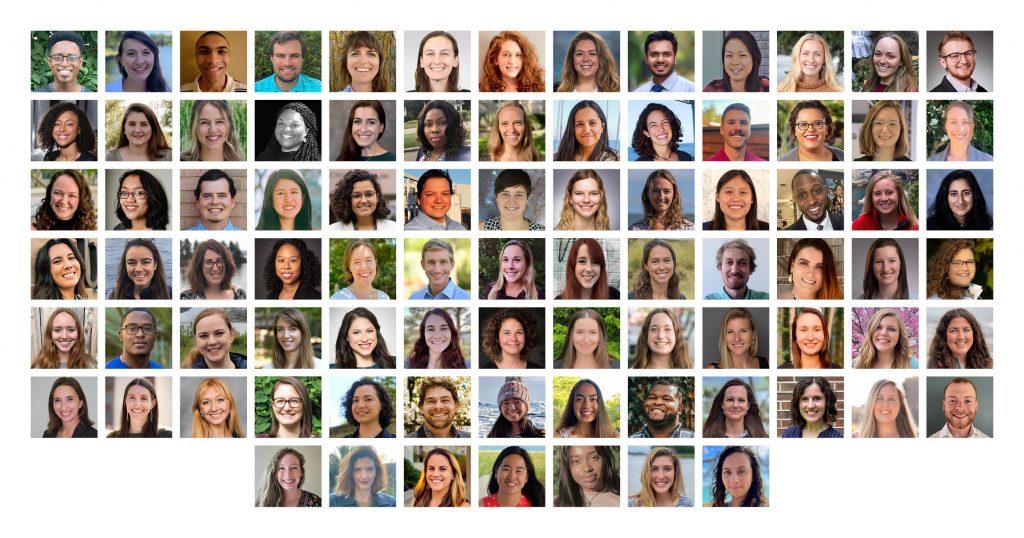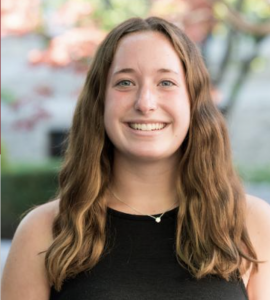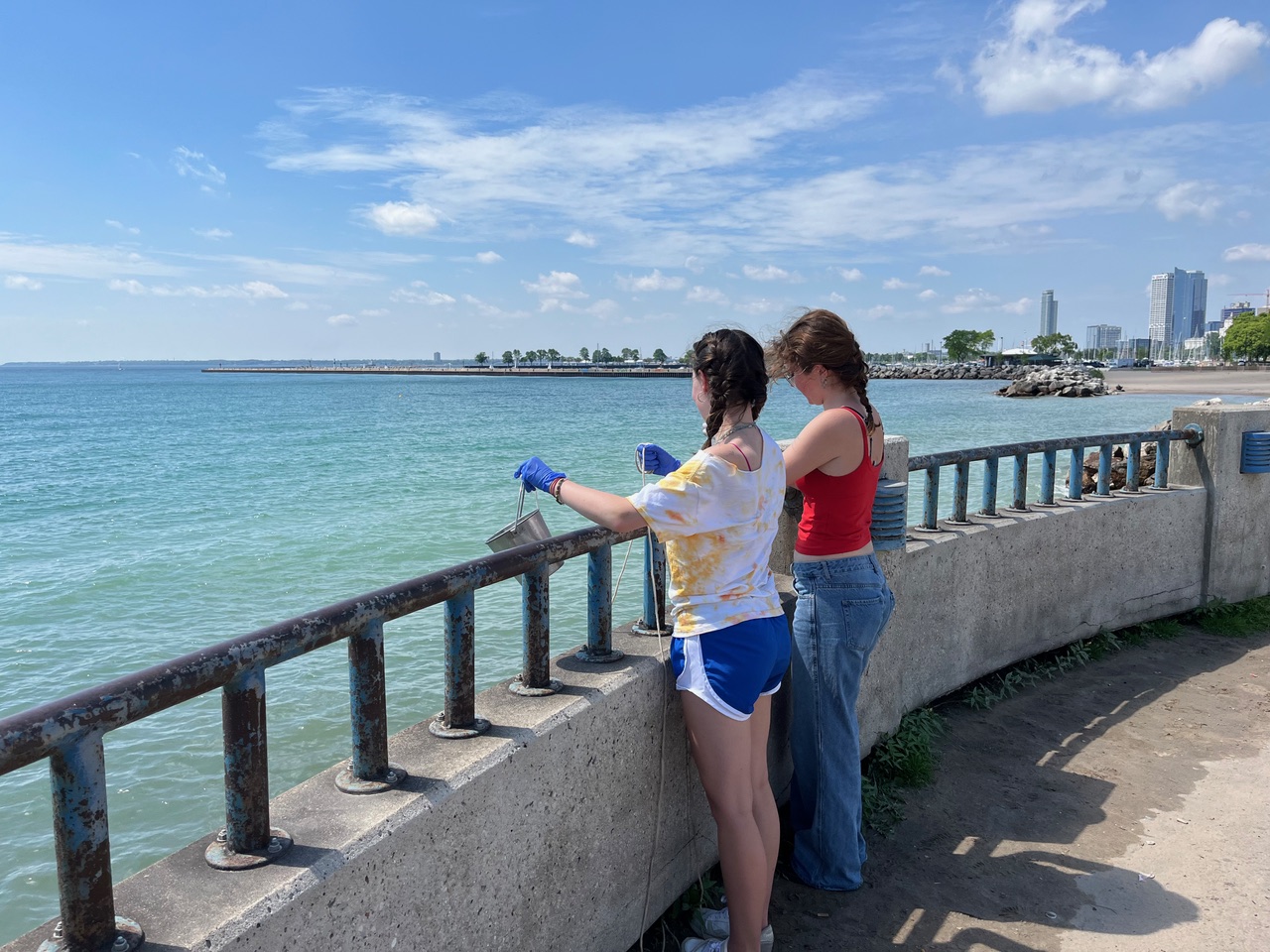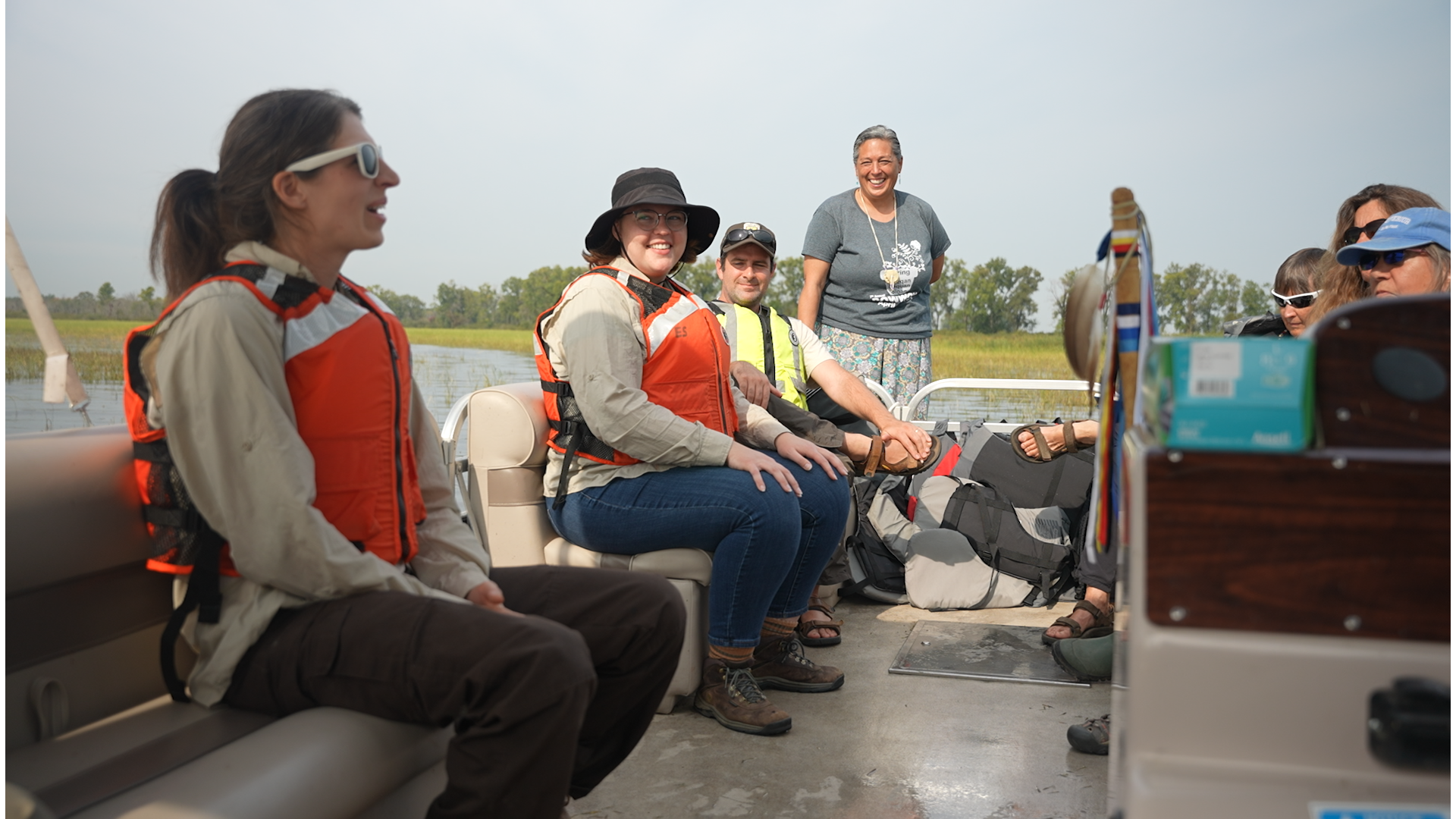Wisconsin’s Mary Solokas is among them
Continuing the tradition of placing early career professionals in Washington, D.C. federal government offices, NOAA and the National Sea Grant College Program are pleased to announce the finalists for the 2023 class of the Sea Grant John A. Knauss Marine Policy Fellowship program. (Read Sea Grant’s full announcement here.)

Members of the 2023 Knauss class. Together, they represent 29 of the 34 Sea Grant programs. (Image credit: Sea Grant)
The 2023 class represents the largest in recent years, with 86 finalists. Among them is Mary Solokas of Wisconsin, a recent master’s graduate of the University of Wisconsin-Madison. (Learn more about Solokas in our profile below).
Since 1979, over 1,550 fellows have completed the one-year Knauss fellowship program, applying their experience to lasting careers in science, policy and public administration.
“The Knauss Fellowship offers graduate students the invaluable opportunity to put their academic knowledge to practice in tackling marine, coastal and Great Lakes management and policy challenges at the federal level,” said Jonathan Pennock, Ph.D., National Sea Grant College Program director. “We look forward to welcoming the 2023 class of Knauss fellows and seeing how they will apply their unique insights to developing solutions to some of the most important challenges facing the country.”
Knauss finalists are chosen through a competitive process that includes comprehensive review at both the state Sea Grant program and national levels. Students that are enrolled in or have recently completed master’s, Juris Doctor (J.D.), and Doctor of Philosophy (Ph.D.) programs with a focus and/or interest in marine and coastal science, policy or management apply to one of the 34 Sea Grant programs. If applicants are successful at the state program level, their applications are then reviewed by a national panel of experts.
This fall, the finalists will participate in a virtual placement week to get to know each other and interview with potential host offices. Following placement, they will begin their fellowships in February 2023. (Placement of 2023 Knauss finalists as fellows is contingent on adequate funding in Fiscal Year 2023.)
Learn more about the 2023 Knauss class, including finalists from other states, in the full news story on the NOAA website.
Meet Mary Solokas
- Hometown: Wyckoff, New Jersey
- Education: University of Notre Dame, B.S. in environmental engineering, 2020; University of Wisconsin-Madison, M.S. in freshwater and marine sciences, 2022
- Favorite book about water: “The Death and Life of the Great Lakes,” Dan Egan
Wisconsin’s Knauss Finalist, Mary Solokas, may not originally hail from the Great Lakes region, but she’s developed an appreciation for these vital inland seas.
As she recounted of a camping trip in Michigan’s Upper Peninsula along Lake Superior, “It was just the clearest water, the most pristine shoreline I’ve seen. Just the vastness of it… It’s just mind-blowing to see a lake like that.”

Mary Solokas is among the newly announced class of Knauss Finalists. (Submitted photo)
A recent master’s graduate of the University of Wisconsin-Madison, Solokas will continue working in the lab of her mentor, Dr. Olaf Jensen at the UW Center for Limnology, as a research assistant until her Knauss experience begins. (Jensen is a former Knauss Fellow himself.) Solokas’ master’s thesis focused on body size changes in freshwater salmonids over the last few decades and how those changes relate to climate change.
“Many species, including many marine fish species, have been shrinking with warming but we found that the body size of the freshwater salmonids in our study were not getting smaller, which leads to many more questions about what is driving these changes in body size,” said Solokas.
She’s excited for the opportunities for professional development and growth that the Knauss program will bring. “I’ve gotten a lot of experience with research on the academic side, so I’m excited to be able to see research translate into on-the-ground action. I’m eager to learn how research influences management and policy through federal agencies.”
The New Jersey native also has a strong interest in science communication and reaching a broad public. Said Solokas, “As a member of the outreach committee in my department in grad school, I worked with others throughout the pandemic to keep people engaged with science from the Center for Limnology.” She’s also shared her passion for science through community events like the Frozen Assets Festival organized by the Clean Lakes Alliance in Madison, where she taught kids how to ice fish and talked with the public about fisheries research.
When not engaging in research or other professional activities, Solokas enjoys outdoor pursuits like hiking, camping and running, as well as curling up with good fiction. Her more unusual skills include juggling and unicycle riding.
We’ll share more about her Knauss experience once she receives her placement.





